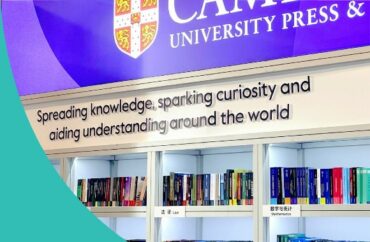
Some warn cost of free articles gets placed on researchers instead
Cambridge University Press plans to open access to the majority of its scholarly documents by 2025 through a new initiative.
Meanwhile, scholars are debating the benefits and consequences of open access.
Based in England, the press is the oldest and one of the leading academic publishers in the world. It oversees more than 250 peer-reviewed academic journals, most of which will become free to read online under the “Building Open Future” initiative, according to its website.
Currently, about 50 percent of its research articles are open access, according to the publisher. By next year, “most of our journals” will be open access, the publisher’s website noted.
Curtis Brundy, an associate librarian at Iowa State University and an advocate of the initiative, told The College Fix in a recent email there are many benefits to open access.
Brundy said the model “allows our researchers’ articles to be read more broadly, which increases the impact of their work.” Additionally, “open access articles are downloaded more often and cited more often,” he said.
“Open access articles published by Cambridge alone … receive on average 3.5 times more full text views and on average 1.6 times more citations,” according to the publisher.
One of the goals of the initiative is to “allow broad participation in scholarly communications” from researchers all across the world, the Cambridge website states.
Brundy told The Fix that “not excluding scholars and readers from around the world is a broad consideration for us” at the press and at his own university.
Mandy Hill, managing director of Cambridge Press, said in a news release that open access will allow high-quality research to be disseminated to individuals worldwide.
“This can help to drive innovation [and] lead to new discoveries,” Hill said.
MORE: Cambridge University dictionary changes entries for ‘man’ and ‘woman’
However, some scholars have expressed concerns about open access models because of the fees they charge.
Stuart Vyse, a psychologist and writer who has extensively studied open access, directed The Fix to his article, “Can We Trust Peer Review Journals,” when asked about the Cambridge initiative.
According to Vyse, open access journals typically require authors to pay “an article processing charge” to make their work free for public consumption.
However, “when authors pay to have their articles considered for publication, it creates the possibility of general bias in favor of acceptance,” he wrote.
John Frank, an emeritus professor at the University of Edinburgh, echoed these concerns in his article, “Open access publishing – noble intention, flawed reality,” shared with The Fix.
Frank wrote “the most direct downside…is the unfair economic burden” on researchers who do not have grant funding to pay journal fees.
These fees can range from $1,500 to $2,500 per article, or higher for prestigious journals, according to his research.
Cambridge University Press charges up to $3,000, according to its website. However, it also launched the Open Equity Initiative last year to fund “open access publishing where there is a cost barrier for authors.”
“This ensures authors from 107 low-and middle-income countries do not have to pay article processing charges to publish in Cambridge journals,” the publisher stated. “The approach is delivered through collective funding, bringing together financial support from Cambridge and our institutional partners.”
The Fix contacted Cambridge University’s press department twice in the past two weeks for comment, but did not receive a response. Questions pertained to the initiative’s conception, funding, and challenges, as well as whether authors have the option to decide whether their article is published as open access.
MORE: ‘Open-access’ journals create ‘concerns about quality’: former academic
IMAGE: Cambridge University Press/Facebook





Please join the conversation about our stories on Facebook, Twitter, Instagram, Reddit, MeWe, Rumble, Gab, Minds and Gettr.